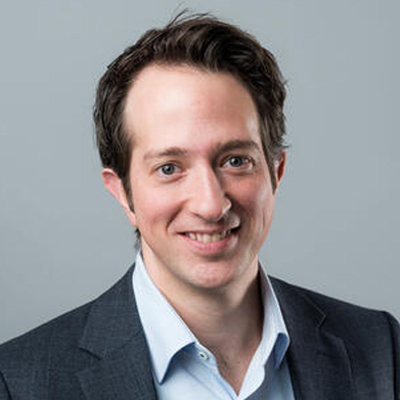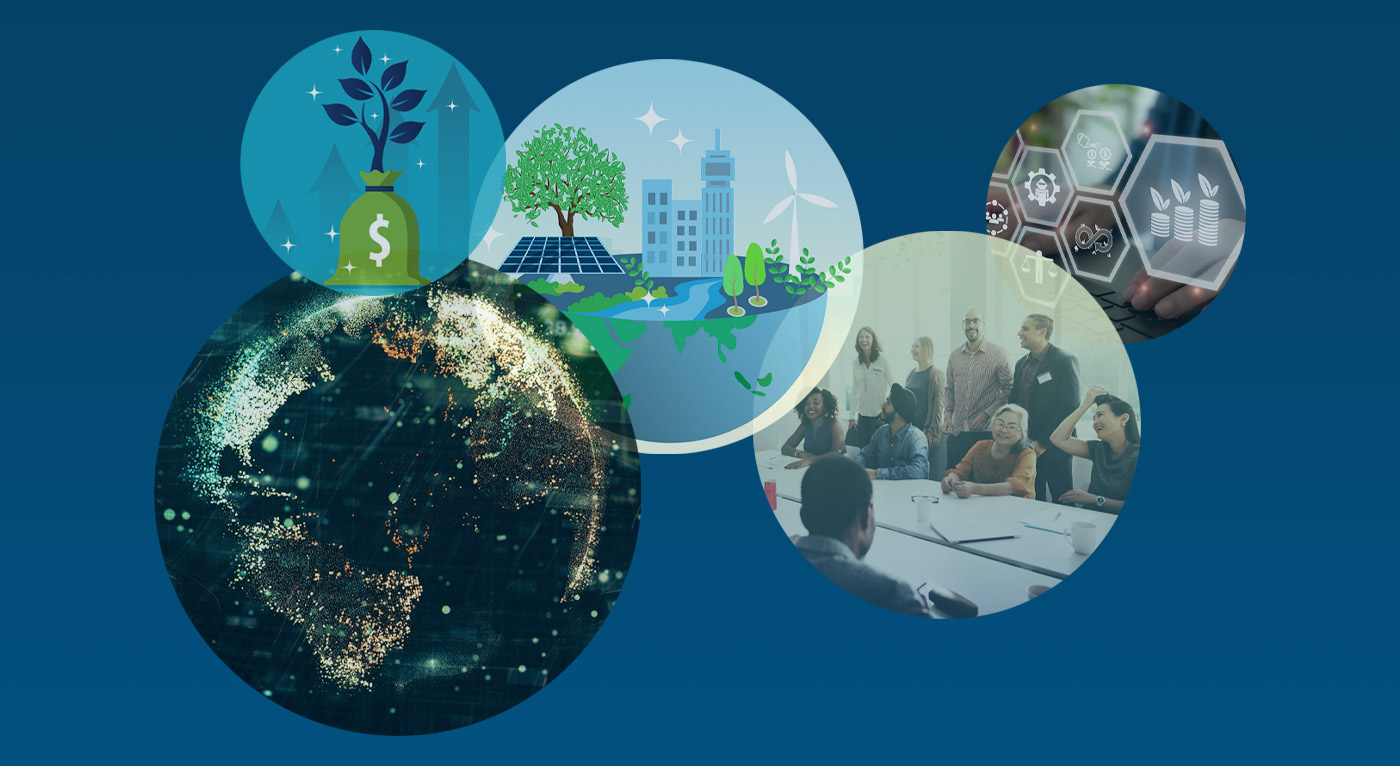
A 2024 grant from the 2086 Society was provided to Jason Jay and Britta Gruenig for this week’s article, “Supporting the ‘Systems Turn’ in Family Office Investing.” There is also a sidebar of useful resources for systemic investing.
“Supporting the ‘Systems Turn’ in Family Office Investing”
When Jesse Fink took Priceline through an IPO, he and his wife Betsy faced a common question for successful entrepreneurs: how to deploy their wealth for maximum positive impact?
The Finks’ approach exemplifies a broader “systems turn” happening in family office investing. Rather than focusing on individual companies or point solutions, more families are asking how their various forms of capital can help transform entire systems. This shift couldn’t come at a more critical time. We have crossed multiple planetary boundaries including climate change. Rising inequality is squeezing workers and spurring populist movements that threaten democratic institutions. Traditional approaches that put Band-Aids on isolated problems are proving insufficient.
Of course, a systems approach isn’t entirely new to the family enterprise field. Family systems therapy has long viewed individuals as systems of internal voices, and families as systems of relationships. What’s new is seeing the family enterprise itself as embedded in larger social and ecological systems, with both risks and opportunities flowing between them.

Family enterprises are uniquely positioned to lead this “systems turn” in investing. Their long-term outlook, flexible capital, and ability to deploy multiple forms of influence make them natural system-level actors. This potential is increasingly recognized in venues like the Family Business Network’s Impact community, Katapult Future Fest, and the Davos SDG Tent, where conversations about systems change investing are gaining prominence.
How can families get started? One key tool is the “multicapital” framework developed by a collaboration between the MIT Sloan Sustainability Initiative, CSP, Katapult Foundation, FBN Impact, and Generation Pledge. It helps families inventory their various forms of influence. These capitals build on the work of sociologist Pierre Bourdieu:1
- Economic Capital: Financial assets and resources, as well as physical assets like buildings and equipment
- Social Capital: Networks, relationships, and trust
- Cultural Capital: Knowledge, skills, and expertise
- Symbolic Capital: Reputation, legitimacy, and influence
- Career choices and professional roles
- Business ownership and operations
- Strategic philanthropy
- Investment portfolio construction
- Public advocacy and field-building

- Carefully define system boundaries and goals for systems change (geographic, sectoral, and issue-based).
- Study and understand the system and its current dynamics (the network of stakeholders, the causal relationships and feedback loops, and the rules and paradigms that shape behavior).
- Identify potential leverage points for intervention where deploying multicapital might have an outsized, catalytic effect.
- Create and experiment with funding architectures that work across asset classes and draw in co-investors and collaborators.
- Continuously reflect, evaluate, and learn, as all actions have intended and unintended consequences in complex systems.
- How to select causes that balance personal passion with systemic importance
- How to maintain family cohesion and shared focus while pursuing system change
- How to measure progress beyond traditional benchmarks
- How to handle fundamental uncertainty while maintaining strategic direction
Sidebar
Links and Resources from “Supporting the ‘Systems Turn’ in Family Office Investing”
Case study by Alban Yau and Jason Jay: Systemic investing to tackle the food waste challenge: The Fink Family and ReFED https://papers.ssrn.com/sol3/papers.cfm?abstract_id=4615351
Center for Sustainable Finance and Private Wealth (CSP) runs capacity building programs for next gens, wealth holders, and wealth managers: https://www.csp.uzh.ch/en/executive-education-training.html
Creating synergy across the portfolio: https://www.linkedin.com/advice/3/how-do-you-create-synergy-between-your-portfolio
Family Business Network (FBN) Impact community now takes a multicapital approach: https://www.fbn-i.org/communities/impact-22
Generation Pledge runs programs for wealth holders use a Polycapital approach help them maximize their impact: https://www.generationpledge.org/
Gruenig & Partners works exclusively with Ultra-High Net Wealth individuals, couples, cousins, and families who want to increase the positive social or environmental contribution they can make, and pursue personal and cultural transformation to achieve this mission. https://brittagruenig.com/
Katapult Foundation: https://www.katapultfoundation.org/
Katapult Future Fest and the Davos SDG Tent are gathering places for investors and business owners interested in systems change. https://katapultfuturefest.com/ and https://www.intent-for-change.org/intent-wef2024
Metabolic coordinates multistakeholder efforts at systems change https://www.metabolic.nl/
MIT Sloan’s Owning Impact Project, driving the theory and practice of systemic investing https://mitsloan.mit.edu/centers-initiatives/sustainability-initiative/owning-impact-project
Planetary boundaries framework for understanding critical environmental issues: https://www.stockholmresilience.org/research/planetary-boundaries.html. And Doughnut Economics to see environmental and social equity issues in a single systems framework: https://doughnuteconomics.org/about-doughnut-economics
System-level investing approaches by large institutional asset owners: Shareholder Commons and the Pre-Distribution Initiative.
Together We Invest for Systems Transformation (TWIST) community of practice for families and others investing for systems change: https://www.wearetwist.org/
TransCap Initiative is a key field building and thought leadership organization for systemic investing http://transformation.capital
- Be humble. If needed, start the conversation and then direct it to someone who knows about it. Families can easily detect a “greenwashing” façade.
- Do the research: It is important for practitioners to understand the leading approaches in the space of family social and environmental impact, systems thinking, systemic investing, and multicapital. Many resources are available in this article’s sidebar.
- Be the change. It is only possible to guide others toward where oneself has gone.
- Practitioners can ask themselves whether, in their own lives, they are having positive or negative impact with work, money, and influence—their multicapital? What leverage points have they found to be more catalytic in their own systems?
- What world does the practitioner want to help create? What could be done to have more positive impact towards this world?
- What is important to let go, and who does the practitioner need to become, to take this work further? Systems transformation requires inner transformation.
- Create space for shared visioning. Many practitioners know how to create a container for deeper inquiry about family goals, and thoughtful reflection on the current state. The key with a systems approach is to let people envision and dream about a better future for their family in its context—the places and communities they love, the wider economy, society, and planet we share. Each person will surface their own images and metaphors, and that diversity must be held respectfully first, if shared vision and alignment are to emerge authentically.
- Develop a common language with the family about systemic investing. Share readings, have some basic shared understanding of the key pieces. The impact champions in the family often take a course such as those we offer with CSP, but not every family member needs to or will go as deep.
- Cultivate curiosity and shared learning experiences: Trips to places at the front line of problems and solutions; dialogue with people affected by social and environmental injustice; encounters with visionaries, experts, and thought leaders. Explicitly map and model the system with a facilitator or learn how the family might plug into system maps already developed.
- Articulate a “theory of transformation”—how the family believes it might contribute, what levers for change it wants to pull with its multicapital. What do they want to do together versus separately as individuals? Who are their key collaborators and coaches in the process?
- Support inner transformation—personal growth, leadership effectiveness, a culture of continuous reflection and inquiry. This is the condition for success to work amid complexity and across generations.

AI acknowledgment: Claude.ai 3.5 Sonnet was used in helping to compose certain paragraphs for concise readability. All concepts are our own, and all AI output carefully reviewed for accuracy.
Reference
1 Bourdieu, Pierre. Distinction: A Social Critique of the Judgment of Taste. Translated by Richard Nice. Routledge, 1984.





